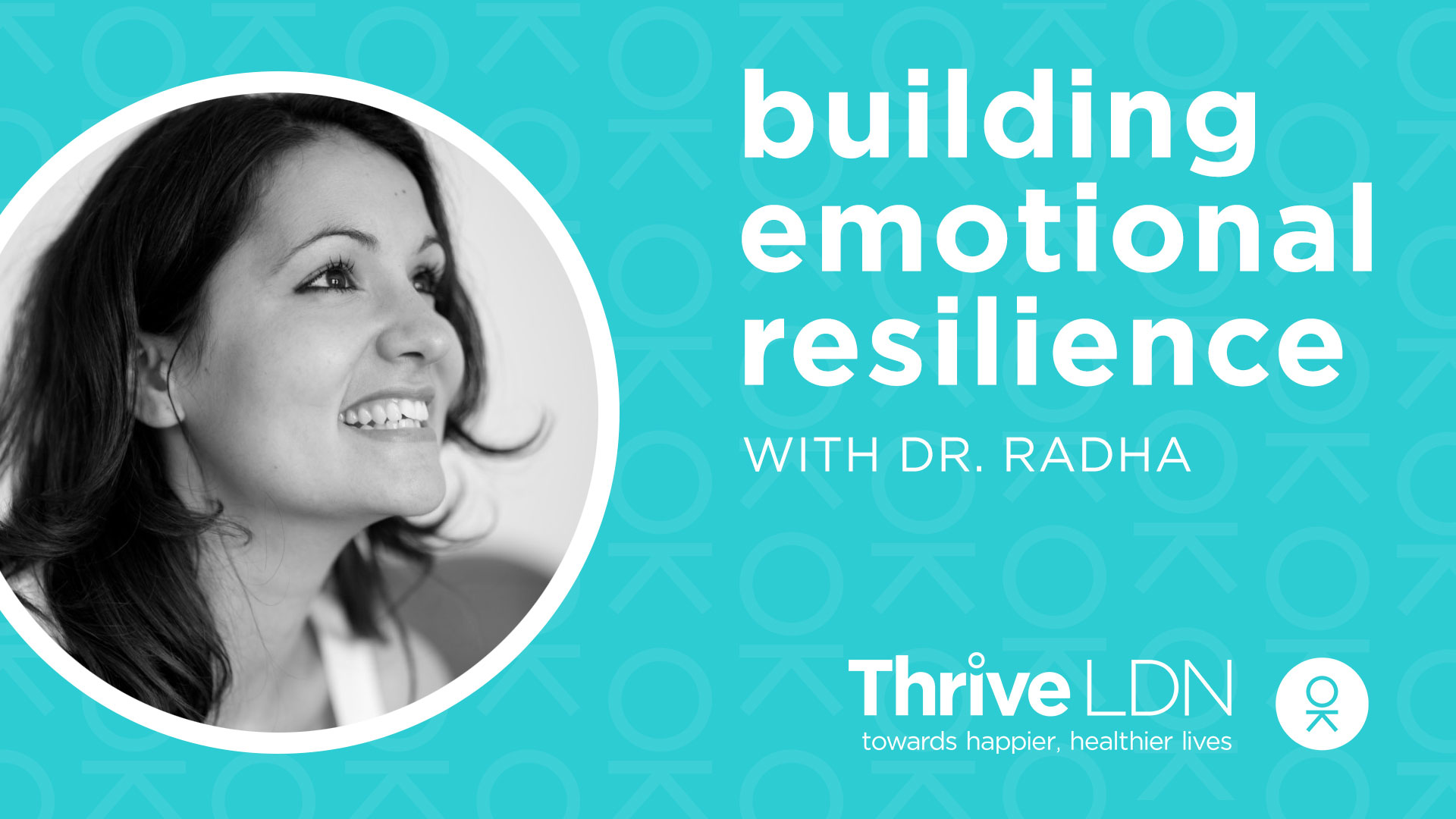
Building emotional resilience
Learn more about emotional resilience from Dr Radha and get lots of practical ideas to help keep yours ‘topped up’.
Learn more about emotional resilience from Dr Radha and get lots of practical ideas to help keep yours ‘topped up’.

In this short training video, you can learn more about resilience and get lots of practical ideas and inspiration about how you can strengthen your own ability to adapt well to stressful circumstances.
British Sign Language version
We have also produced this video with British Sign Language interpretation. Watch now on our YouTube channel.
We’ve teamed up with Dr Radha Modgil – NHS GP, broadcaster and campaigner for wellbeing – as well as Londoners like you, to develop a 20-minute training video on building emotional resilience.
Building emotional resilience
Making small changes can make a big difference and can help you to effectively build emotional resilience.
Our ability to adapt well to the stress of life, as well as being able to bounce back from adversity, crises or trauma, is often referred to as emotional resilience.
The good news is that resilience isn’t fixed, or something we are born with (or not). We can all top up our resilience reserves by doing some really simple things, like a walk outside, or treating ourselves to something that makes us happy.
As Dr Radha says in the training video: “For many of us, this has been the most challenging year of our lives. Our ability to cope with the normal stress of life, as well as being able to bounce back from adversity, crises or trauma, whilst staying mentally well, is often referred to as emotional resilience.
“In just 20 minutes, I hope that you can find just one or two simple strategies and ideas that will work for you. We are living through huge uncertainty which is why it has never been more important for us to take care of our mental health to deal with and adapt to these challenges.”
Finding inspiration from others
Dr Radha talks in more depth to four Londoners with very different perspectives about their experiences.
In a follow up to the training video, Dr Radha joins four of the participants, Andrea, Angelo, Carrie and Jess, to explore what we mean by building emotional resilience and the barriers and challenges people face in keeping theirs topped up.
Making small changes can make a big difference and can help you to effectively build emotional resilience. However, this isn’t always straight forward or as easy as it sounds.
Dr Radha talks to four Londoners with very different perspectives about their real-life experiences and how boosting their emotional resilience has benefited them and how it could benefit you. By watching the discussion you can learn more about resilience and get lots of practical ideas and inspiration about how you can strengthen your own ability to adapt well to stressful circumstances.
The discussion covers three key themes:
#1 Things we can do to build resilience featuring individual stories from four Londoners.
#2 Tips for overcoming everyday challenges and obstacles we face.
#3 How boosting emotional resilience has made a difference for our four Londoners, their families, and friends.
Other resources to help you
There are a number of other resources and services available to support your mental health and wellbeing during this challenging time.
Digital resources available now
Good Thinking is a digital mental wellbeing service that has over 100 free, NHS-approved resources designed to help those dealing with anxiety, low mood, poor sleep or stress. Take the clinically validated self-assessment to get a better understand of what you’re going through, helpful resources and if necessary, relevant treatment options.
To help build resilience and maintain good mental wellbeing, Every Mind Matters has a range of resources for everyone at Including an interactive quiz, the Your Mind Plan, to get top tips and advice relevant for you.
NHS psychological treatments
If you do not require urgent support but are still concerned about your mental health, contacting your GP is a good place to start.
You can also refer yourself for free, non-urgent NHS talking therapy services, also known as IAPT (Improving Access to Psychological Therapies) services, which provide evidence-based treatments for depression and anxiety. In London, services are ready and open to receive self-referrals for those needing professional support.
Helplines
Or you may feel more comfortable talking to someone you don’t know by using one of the following helplines:
• If you, or anyone you know, is experiencing a mental health crisis and needs urgent assistance, advice or support, contact your local 24/7 NHS mental health helpline.
• Shout is the UK ‘s first 24/7 text messaging service for anyone in crisis. Text Shout at any time to 85258 to start a conversation.
• Samaritans’ free, 24-hour listening service on 116 123 or email jo@samaritans.org.